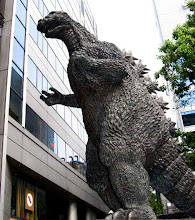
"If thought makes free, so does the moral sentiment. The mixtures of spiritual chemistry refuse to be analyzed. Yet we can see that with the perception of truth is joined the desire that it shall prevail. That affection is essential to will. Moreover, when a strong will appears, it usually results from a certain unity of organization, as if the whole energy of body and mind flowed in one direction. All great force is real and elemental. There is no manufacturing a strong will. There must be a pound to balance a pound. Where power is shown in will, it must rest on the universal force. Alaric and Bonaparte must believe they rest on a truth, or their will can be bought or bent. There is a bribe possible for any finite will. But the pure sympathy with universal ends is an infinite force, and cannot be bribed or bent. Whoever has had experience of the moral sentiment cannot choose but believe in unlimited power. Each pulse from that heart is an oath from the Most High. I know not what the word sublime means, if it be not the intimations in this infant of a terrific force. A text of heroism, a name and anecdote of courage, are not arguments, but sallies of freedom. One of these is the verse of the Persian Hafiz, "'Tis written on the gate of Heaven, `Wo unto him who suffers himself to be betrayed by Fate!'" Does the reading of history make us fatalists? What courage does not the opposite opinion show! A little whim of will to be free gallantly contending against the universe of chemistry.
But insight is not will, nor is affection will. Perception is cold, and goodness dies in wishes; as Voltaire said, 'tis the misfortune of worthy people that they are cowards; "un des plus grands malheurs des honnetes gens c'est qu'ils sont des lafaches." There must be a fusion of these two to generate the energy of will. There can be no driving force, except through the conversion of the man into his will, making him the will, and the will him. And one may say boldly, that no man has a right perception of any truth, who has not been reacted on by it, so as to be ready to be its martyr.
The one serious and formidable thing in nature is a will. Society is servile from want of will, and therefore the world wants saviours and religions. One way is right to go: the hero sees it, and moves on that aim, and has the world under him for root and support. He is to others as the world. His approbation is honor; his dissent, infamy. The glance of his eye has the force of sunbeams. A personal influence towers up in memory only worthy, and we gladly forget numbers, money, climate, gravitation, and the rest of Fate.
We can afford to allow the limitation, if we know it is the meter of the growing man. We stand against Fate, as children stand up against the wall in their father's house, and notch their height from year to year. But when the boy grows to man, and is master of the house, he pulls down that wall, and builds a new and bigger. 'Tis only a question of time. Every brave youth is in training to ride and rule this dragon. His science is to make weapons and wings of these passions and retarding forces. Now whether, seeing these two things, fate and power, we are permitted to believe in unity? The bulk of mankind believe in two gods. They are under one dominion here in the house, as friend and parent, in social circles, in letters, in art, in love, in religion: but in mechanics, in dealing with steam and climate, in trade, in politics, they think they come under another; and that it would be a practical blunder to transfer the method and way of working of one sphere, into the other. What good, honest, generous men at home, will be wolves and foxes on change! What pious men in the parlor will vote for what reprobates at the polls! To a certain point, they believe themselves the care of a Providence. But, in a steamboat, in an epidemic, in war, they believe a malignant energy rules."
Ralph Waldo Emerson on Fate




No comments:
Post a Comment